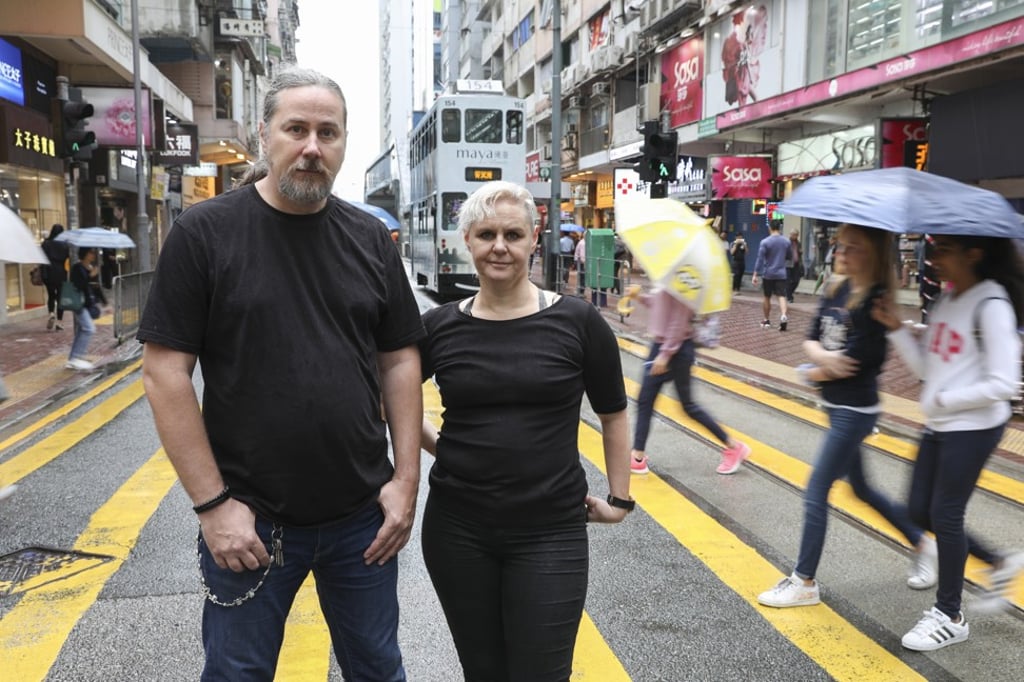Mental illness and art combine in photo project with sufferers showing the weight they bear
- Artists Bex and Nic Gaunt show images of people carrying giant stones as a metaphor for the burden sufferers of mental illness must carry each day
- The Hong Kong-based couple hope it will help remove stigma surrounding mental health problems

When photographers Bex and Nic Gaunt put a call out on social media seeking models to take part in a project to raise awareness about mental health, they had no idea the response would be so overwhelming.
“So many people reached out – it’s really snowballed,” says Nic. “So far we’ve taken 40 images and there’s a waiting list of others wanting to take part and share their stories about grief, depression, bipolar – whether it’s their personal story or the story of someone they know.”
The husband-and-wife team got creative for the project, with images showing ordinary people holding up Photoshopped out-of-proportion stones, a metaphor for the weight and burden that sufferers of mental illness must carry on a daily basis.
“When you pass someone on their way to work, you have to understand that they might be suffering from a mental illness, experiencing personal problems that you can’t see,” says Bex. “We wanted people to break their silence, to lay bare their issues and help break down barriers and stigmas surrounding mental illness.”

Bex says people from all walks of life and of various races, genders and nationalities have shown interest in the project. “An Indian lady was so happy to get involved – she said she found it difficult to broach the subject in her culture,” says Bex.